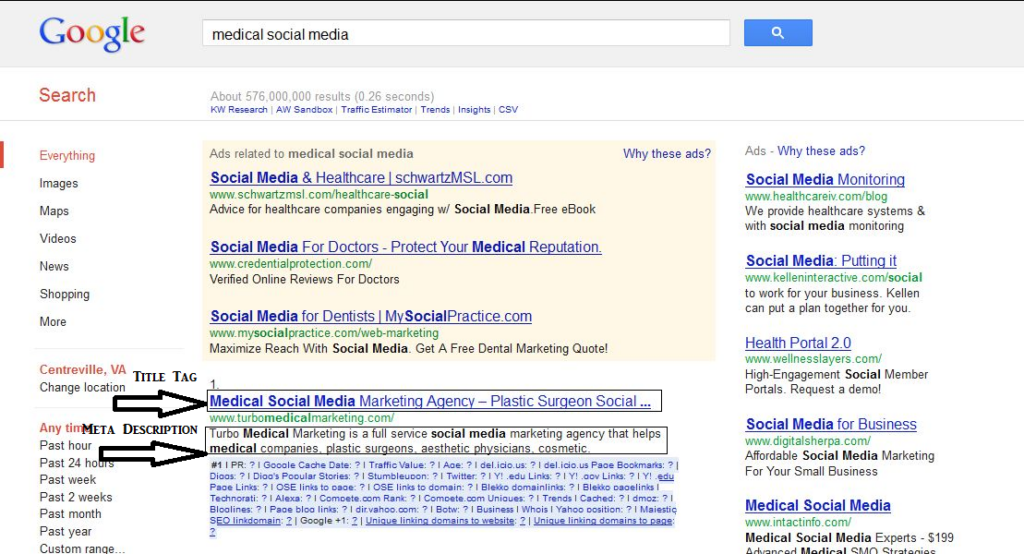
*Please note: in this article I’ll use “Google” in place of “search engines.” This is simply because Google is by far the market share leader, and if your website ranks highly with Google it’ll most likely rank highly on other search engines, such as Yahoo and Bing. The tips mentioned below apply to all search engines.
There have, however, been a couple changes within Google’s algorithm worth mentioning. The first is Google’s ability to detect black hat tactics. ‘Back in the day’ you could get away with things like cloaking and keyword stuffing to achieve high search engine rankings, and now that is all but impossible to do. The second change, or improvement, directly coincides with the growth of blogs on the Internet, and that is the importance of producing quality, unique content.
In this article I’ll simplify the SEO approach, and explain how your medical practice can achieve high rankings. These high search engine rankings will help make your practice more visible online and drive more traffic to your website. Here’s a concise breakdown of everything you need to focus on:
1) Quality content (blogging): Perhaps the most important element of this entire list. Google has even adjusted itself to not penalize websites that don’t know very much about SEO, and subsequently don’t follow #2 below, but produce top notch articles. Google is doing a better job of determining the quality of an article, and whether or not the content has been duplicated. You need to have a blog and you need to be using it to produce quality articles at least a few times a month, if not more. Here are some tips for writing quality blog articles for your medical practice.
2) Internal Optimization (Title Tags, Meta descriptions, Image Tags, H1 tags, sitemaps, etc): Once you have the content you need to make sure that search engines can index it appropriately. Your page title tag and meta description summarize to Google what that particular page is all about. If it’s an article about skin rejuvenation, then you would not only want to include “skin rejuvenation” in the title tag & meta description, but you’ll want to enter the city or area near your practice. For example, “St. Louis skin rejuvenation.” Combining the city or area with the topic of the article will help you achieve high rankings in your area. Also, check out the above example to see how the title tag & meta description appear in search results.
There are other tools to use to optimize your website or a blog article. Any images that you add to your website or blog can be optimized to also rank highly. The H1 tag is a header tag and it designates the heading of an article. Make sure your blog articles have the same, or similar, keyword phrase in the title tag, meta description, image tags and H1 tag. The sitemap is also an important part of your website. An HTML sitemap can help visitors see the category structure, but more importantly, an XML sitemap will help search engines see your category structure, which will help each page get indexed. Finally, inter-linking pages frequently throughout your website will also help each page get indexed.
3) External Optimization (Backlinking): Another very important part of any optimization strategy. You want to steadily grow the number of external hyperlinks from outside websites to yours. In Google’s eyes, this makes your website more popular and more credible, helping you achieve higher rankings. Social networking sites, directories, blogs and forums are good ways to start generating backlinks. The higher quality the website that’s linking to you the better.
There isn’t a secret formula or large amount of money you have to pay Google to ranking highly in search engines (organically). In fact, if you follow the simple steps listed above, over time you will see improvement in your rankings. Of course, you’ll want to do keyword research to help you with your optimization, as well as utilize a self-hosted blog, such as WordPress.
If you have any questions about SEO, including blogging, keyword research, internal optimization or external optimization, then leave us a note here, or feel free to call us directly at 877-673-7096 x2.







